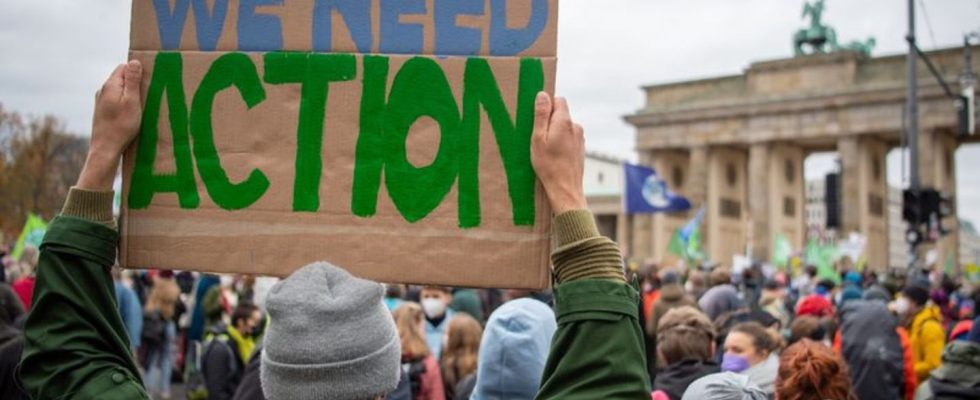The headline about a heat record is clicked away and the criticism of air travel is dismissed. Instead of dealing with the consequences of climate change, some prefer to ignore them. Why?
Unpleasant things are often pushed aside, such as the next tax return or a long overdue dentist appointment. Climate change is also on the list of topics that many people tend to put aside in their minds. The extent of the consequences should actually put people on high alert: heat records, droughts and floods have long been making regular headlines in Germany.
But instead of taking action, dealing with the issue is often postponed until later. According to psychologist Lea Dohm, this behavior is typical for humans and is not unusual in itself: “We need repression so that we can focus in everyday life,” says Dohm. “Even mentally healthy people are always repressing something.”
Certain topics would have to be ignored in order not to be constantly stressed. The expert is a psychotherapist at the German Alliance for Climate Change and Health and co-initiator of the Psychologists for Future association.
Not a new phenomenon
“When it comes to climate issues, repression still works quite well. If I simply avoid certain news stories or perhaps certain people who keep asking me about them, then I can easily ignore them in everyday life,” says Dohm. The phenomenon may be particularly pronounced these days, as there are a lot of reports about the climate crisis due to the ongoing world climate conference in Dubai.
But even before that, many people avoided such news. In a survey conducted by the Planetary Health Action Survey (PACE) project in September with around 1,000 participants, almost a third of them said they rarely or never informed themselves about climate change.
Topic particularly stressful for young people
In contrast to adults, the psychological defense strategy of children and adolescents is less stable, according to Dohm. Therefore, they were more inclined to perceive the climate crisis as stressful. But this is certainly also due to the fact that they have to experience the consequences of climate change for much longer, says the psychologist.
In any case, many people don’t care about the topic – at least that’s what a study published this year by the Federal Environment Ministry and the Federal Environment Agency (Uba) shows. In the representative population survey, 57 percent of those surveyed rated the topic of environmental and climate protection as “very important”. 85 percent of participants are already experiencing very strong or severe effects of climate change in the form of persistent drought, low water levels and droughts.
The climate crisis can be overwhelming and cause unpleasant feelings, says Dohm. According to her, the fact that many people suppress the problems despite seemingly great awareness may have the following reason:
“The problem is that people don’t know any effective options for action. We know that knowledge about the climate crisis is then better processed psychologically and people are more likely to have the issue on their radar if they also have the impression: I can actively do something.”
Go step by step together
People who want to get involved don’t have to change their entire lives in one fell swoop, says the psychologist. “You can eat bratwurst and work for climate protection.” Nobody in society is free from guilt. A great influence can be had, above all, through collective action.
Consumer researcher Michael Bilharz also sees the individual as responsible for this. The scientist is responsible for Uba’s CO2 calculator, which users can use to calculate their own CO2 balance in tons.
“If I really want to get down from my personal footprint, then I have to get to the big points,” says Bilharz. The so-called big points, i.e. the areas that have a particularly large influence on the ecological footprint, included heating energy, mobility, nutrition and electricity generation. In general, the higher the income, the higher the consumption level, explains Bilharz.
Environmental protection can also protect your wallet
Won’t changing your behavior be expensive? Not necessarily, says the scientist. “For example, a modest level of consumption protects the environment to a very high degree – the smaller apartment, the smaller car, not traveling by plane. These are all measures that would benefit the climate and the environment and save a lot of money. “
It’s not about getting the most out of every strategy. Everyone has to weigh up what is possible for them personally.
The scientist believes that it is wrong to settle for small measures such as buying a bamboo toothbrush. “It makes you feel good,” says Bilharz. “If we want to save our prosperity, we must get the climate crisis under control and achieve a climate-neutral economy and way of life.”

